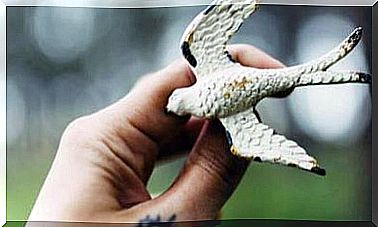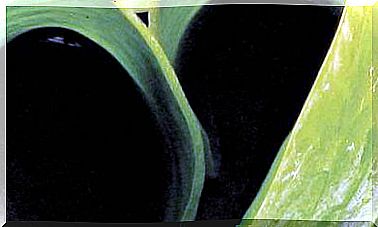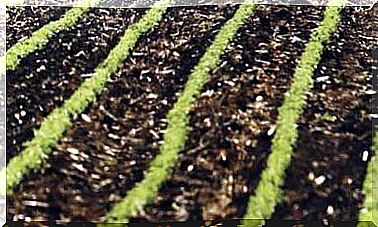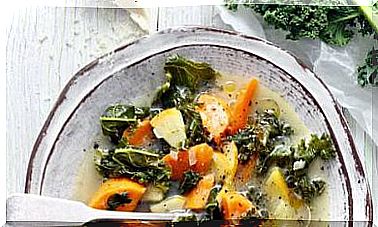Vegan Cosmetics, Do You Know The Alternatives To Ingredients Of Animal Origin?
Beauty and personal hygiene products that use only vegetable raw materials are the safest and most ethical alternative to synthetic and conventional cosmetics

The cosmetics certified organic have enormous advantages: do not contain ingredients derived from the oil industry or substances which have been associated with harmful effects on health.
Going one step further, entirely vegetable or vegan cosmetics also renounce ingredients of animal origin. These are found both in conventional cosmetics and in ecological, organic or biological.
12 cosmetic ingredients of animal origin and their alternatives
If you want to make sure that your product is totally free of ingredients of animal origin, you must go to trusted manufacturers, make your own cosmetics or buy vegan certified products. These products will also be totally unrelated to animal experimentation.
One hundred percent vegetable and mineral cosmetics is the most consistent option for people who renounce foods of animal origin in their diet.
1. Collagen
It is a protein that forms fibers and is obtained from bones, cartilage and animal tissues such as pigskin or chicken feet.
Alternatives: soy protein or almond and amla oils are very hydrating and nourishing. The homemade option: an algae mask!
2. Urea
It is extracted from urine and other body fluids and is used in deodorants, toothpastes and rinses, dyes, creams, lotions, shampoos … Ingredients such as imidazolidinyl urea, polyoxymethylene urea and diazolidinyl urea are preservatives that release formaldehyde, an allergenic and carcinogenic compound, according to the International Institute for Research on Cancer (IARC).
Alternatives: there is a vegetable “urea” that is obtained from fungi and from leaves and seeds. Olive and argan oils can be used as a source of hydration.
3. Carminic acid
It is the red pigment extracted from the crushed female mealybug. It is used in cosmetics (lipsticks), shampoos and also in food as a colorant. It can be identified with the E-120 nomenclature.
Alternative: beet juice and henna root are used in hair dyes, lip balms, blushes, shampoos …
4. Retinol
It is vitamin A from animal sources, widely used in creams for mature skin.
Alternative: the carotene obtained from carrots, raspberry seed oil and red pepper.
5. Biotin
It is a vitamin of group B (also called vitamin B7 or B8) that is found in all living cells, especially in milk and yeasts. In cosmetics it is used, in shampoos and creams, for example, as a texturizing agent.
Alternatives: corn flour and vegetable resin. Clay is a mineral and natural option.
6. Animal fats and oils
One of the most used is lard. All animal fats are highly allergenic.
Alternatives: vegetable raw materials such as olive, wheat germ, linseed, coconut, almond, safflower or hemp oils are much more effective and healthy.
7. Animal hair
Wild boar, for example, is used in hair and shower brushes or shaving brushes. Sable and mink hair become makeup brushes.
Alternatives: vegetable (bamboo) or synthetic (nylon) fibers do their job perfectly.
8. Lanolin
It is secreted by the sebaceous glands of sheep and is extracted from wool. It is used as an emollient in many skin care products and medications.
Alternatives: shea butter and olive oil.
9. Milk
Milk from cows, sheep, goat, camel, donkey and other mammals is widely used in cosmetics with various applications: creams, lotions, soaps … Milk proteins and lactic casein acid can cause skin allergies.
Alternatives: the lauric acid in coconut oil has moisturizing and protective properties for the skin.
10. Honey
It is used as a moisturizer and softener in facial and body creams, shampoos, masks …
Alternatives: pure aloe vera and almond oil.
11. Beeswax
It is used for texturing and for its vitamin A.
Alternatives: raspberry seed oil for vitamin A and clay and agar-agar to gel.
12. Propolis, royal jelly, pollen
They are used for their lipids, terpenes, and acids that are used for various purposes.
Alternatives: pine sap is a source of terpenes, jojoba oil provides hydration and shea oil is rich in triglycerides and oleic, linoleic and palmitic acids. Any vegetable oil – for example, argan oil or grape seed oil – provides lipids and is used to emulsify.
100% vegetable cosmetics are booming
Showing a vegan or “cruelty-free” certification is a guarantee for the consumer, but requires an added financial effort from companies, often small.
In fact, in Spain there are manufacturers of vegan products, although they are not certified as such. This is the case of the Dulkamara firm from Navarra or Esencias de Luna from León, which manufacture artisan cosmetics without ingredients of animal origin.
According to Montse Escutia, coordinator of the Ecoestética Network and the BioVidaSana seal, there is increasing interest in this healthy, ethical and close cosmetic.
Although animal tests have been prohibited by the European Union since 2013, there are companies that continue with experiments outside the European Union to access the Chinese market, where they are mandatory, according to Amanda Romero, from Animal Equality Spain, an organization that defends human rights. of the animals.
That is why it is important to identify which brands do not test on principle and not according to the audience they are targeting. “The pressure from consumers can make a difference,” says Romero.
On the other hand, an informed consumer can discover ingredients of animal origin on the label of any product.
Cruelty free and vegan certifications
Cruelty free products have not been tested on animals. The Vegans do not include animal ingredients.
On the labeling of cosmetic products we can find some of these certifications :
- Leaping Bunny : The “jumping rabbit” is awarded by Cruelty Free International to products that prove to have been unexperienced.
- PETA Cruelty free : the animal rights organization PETA grants the seal to companies that declare not to resort to experimentation.
- PETA Cruelty free and vegan : do not contain ingredients of animal origin. The database can be consulted at www.peta.org.
- The Vegan Society – Awarded by the British Vegan Association and featured on over 18,000 products.









